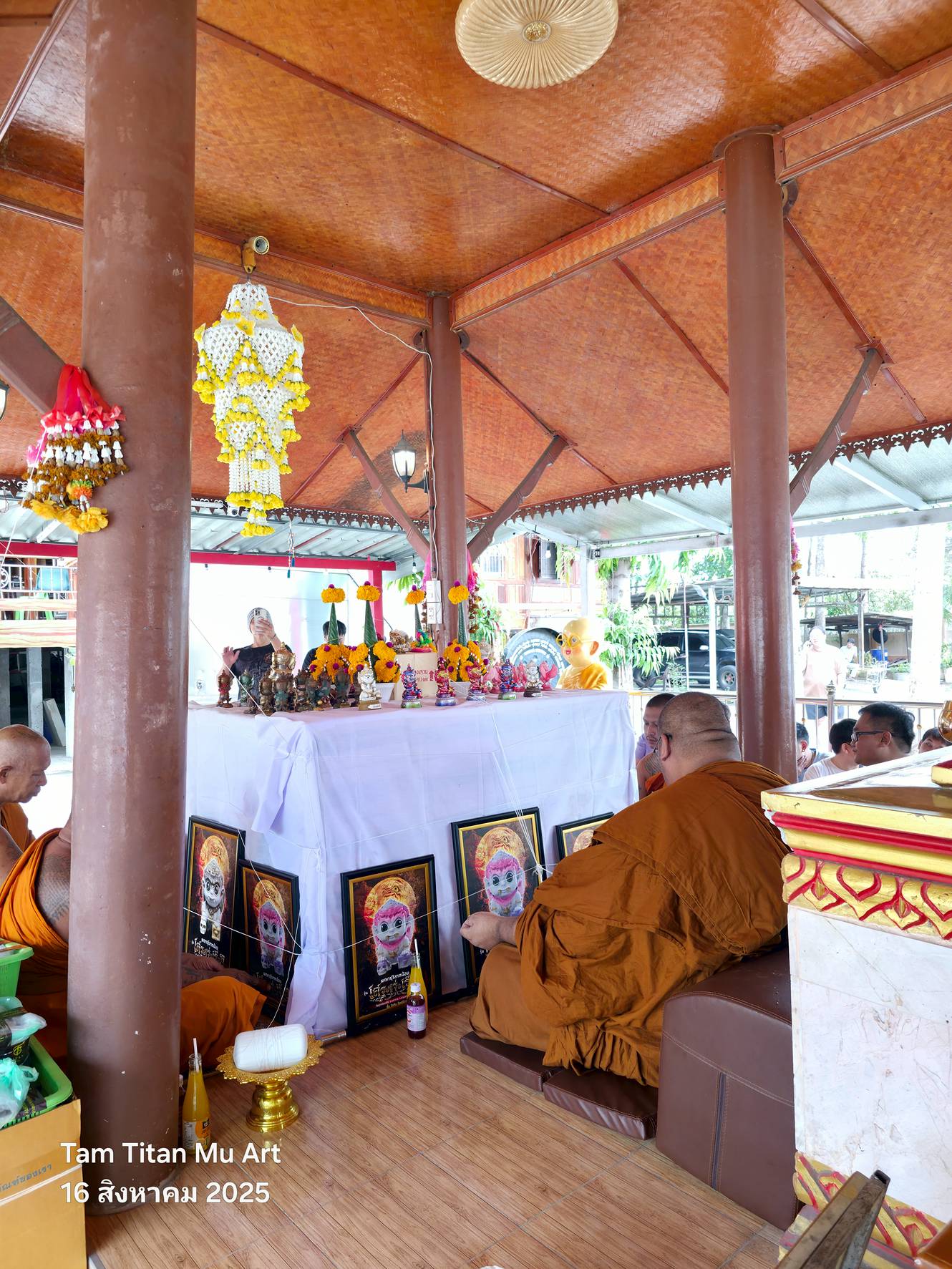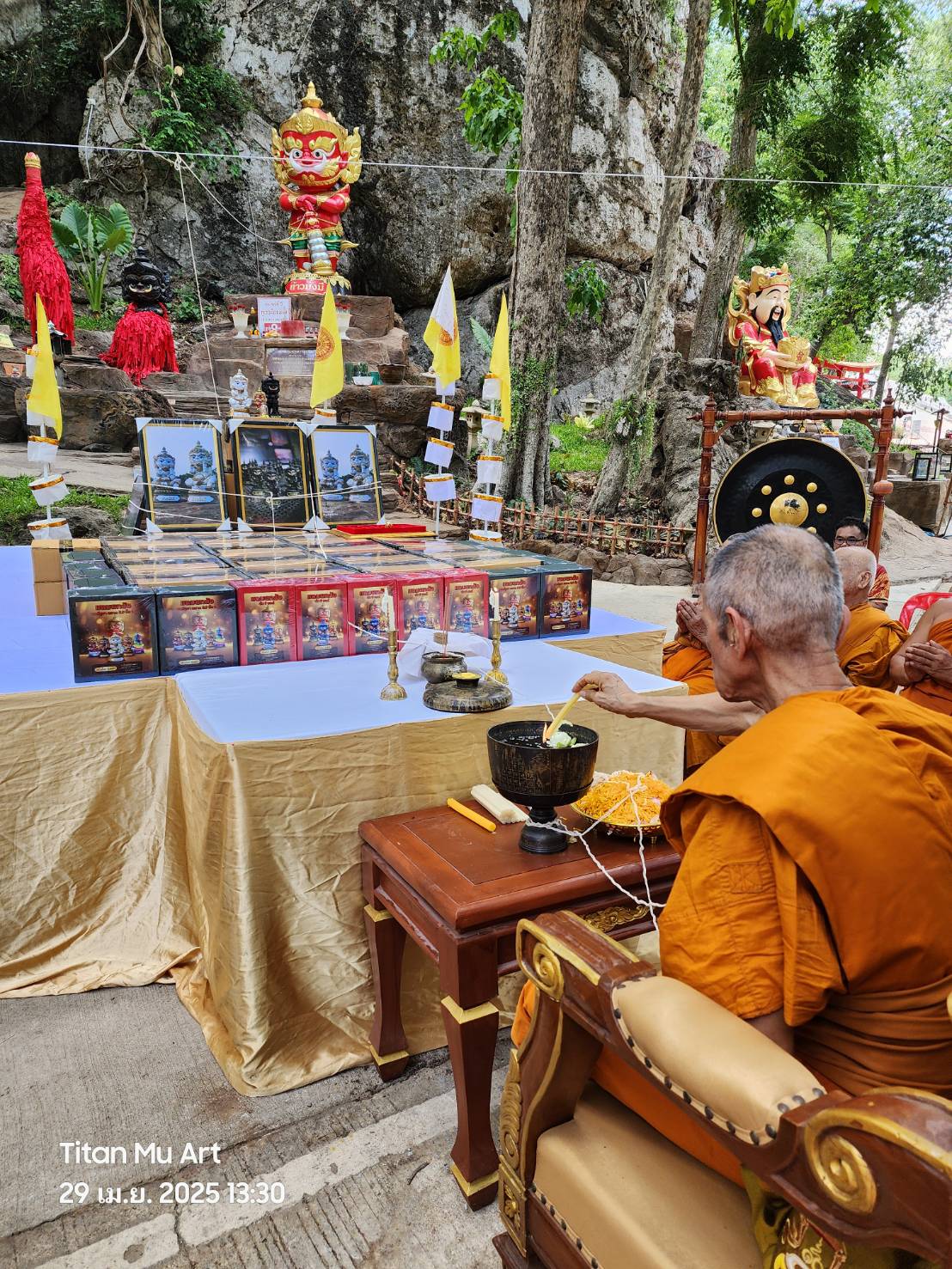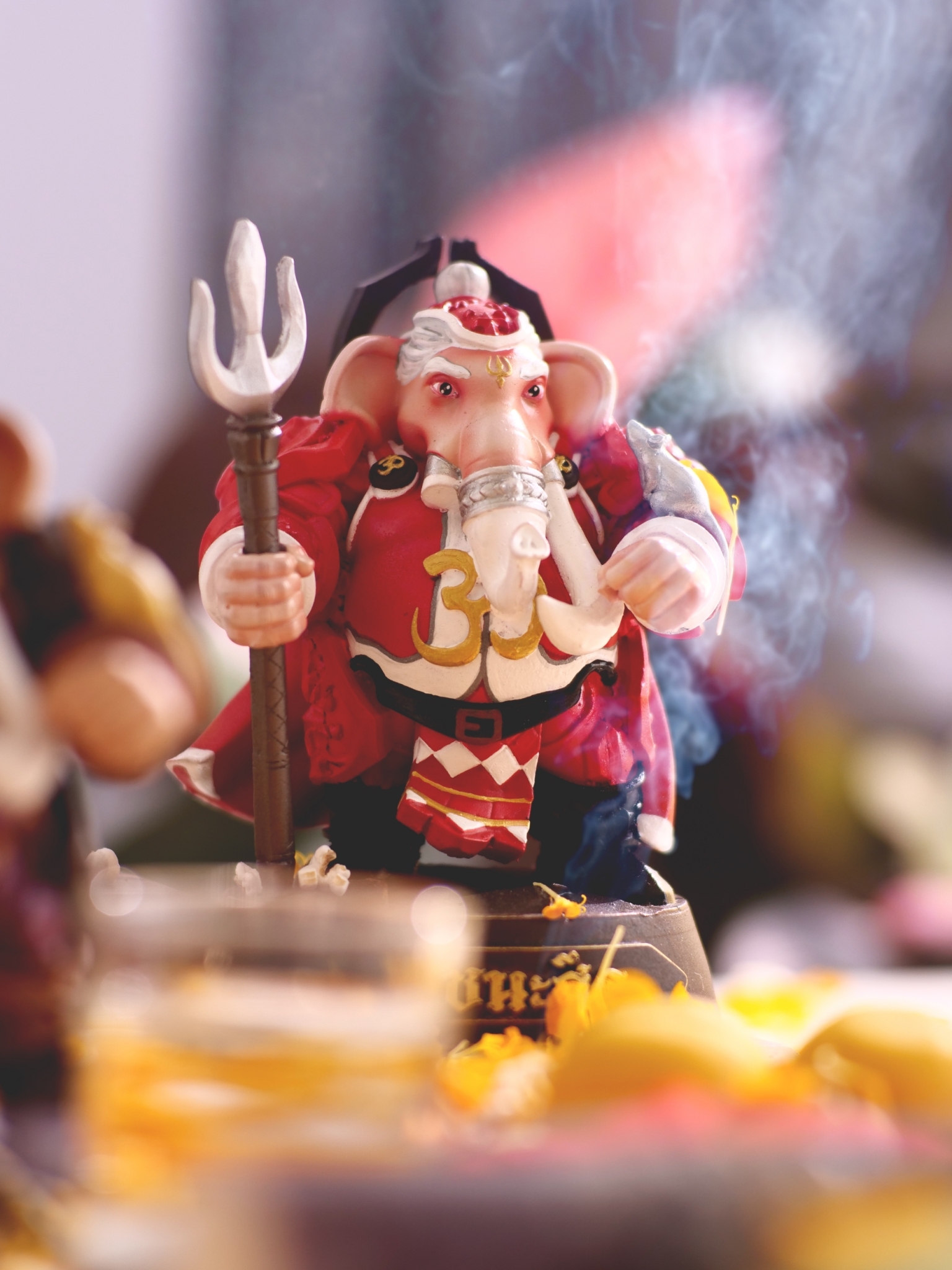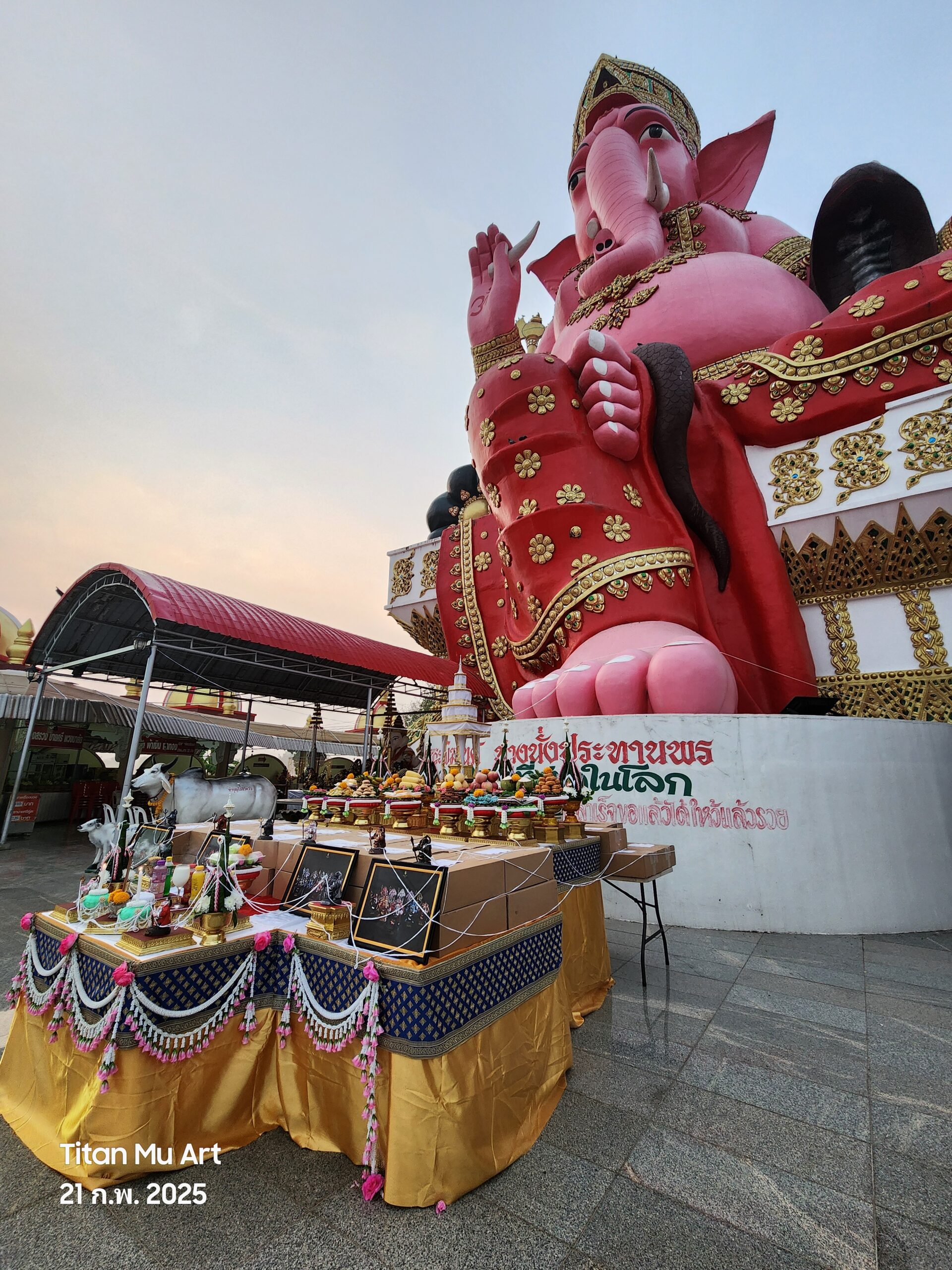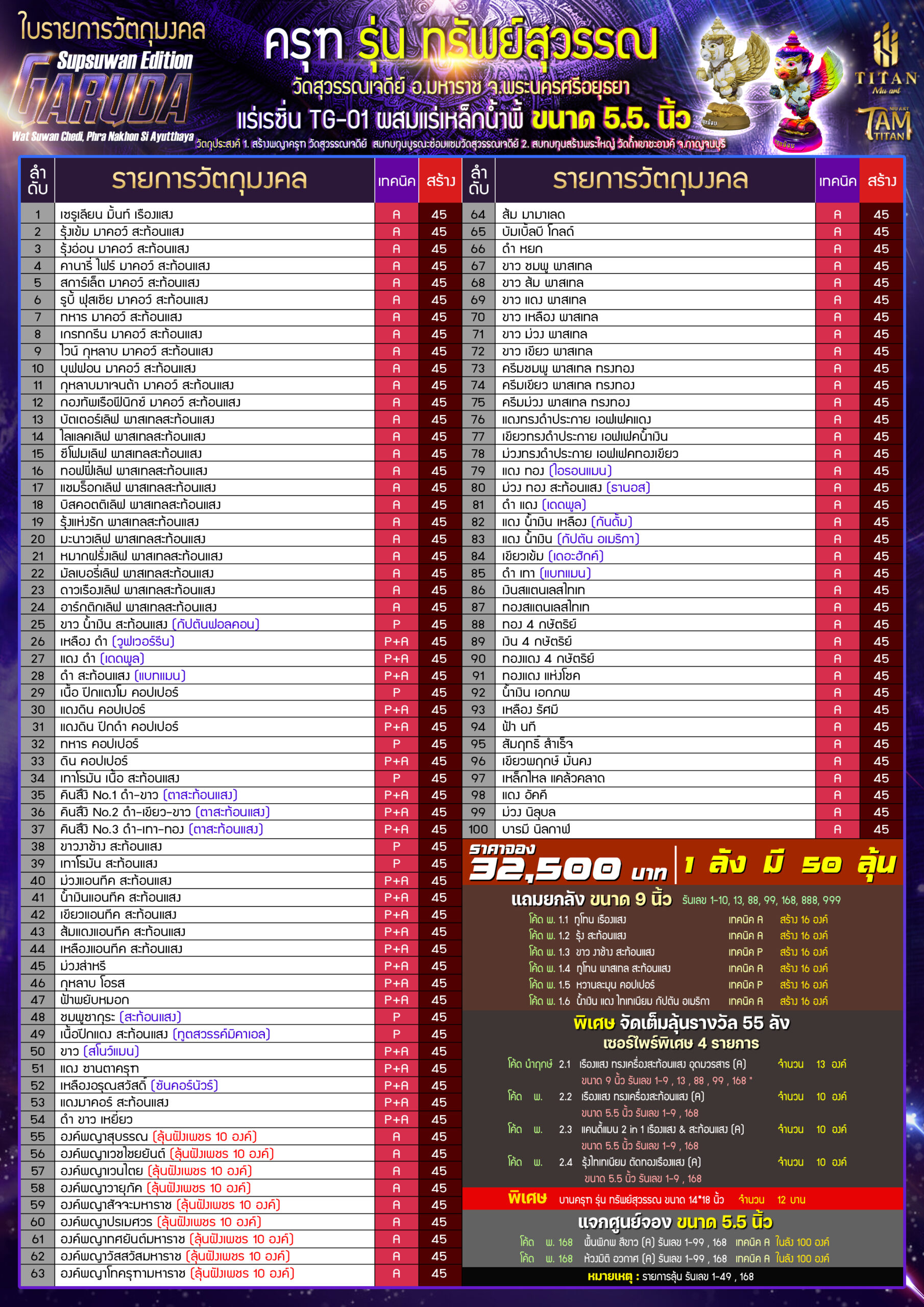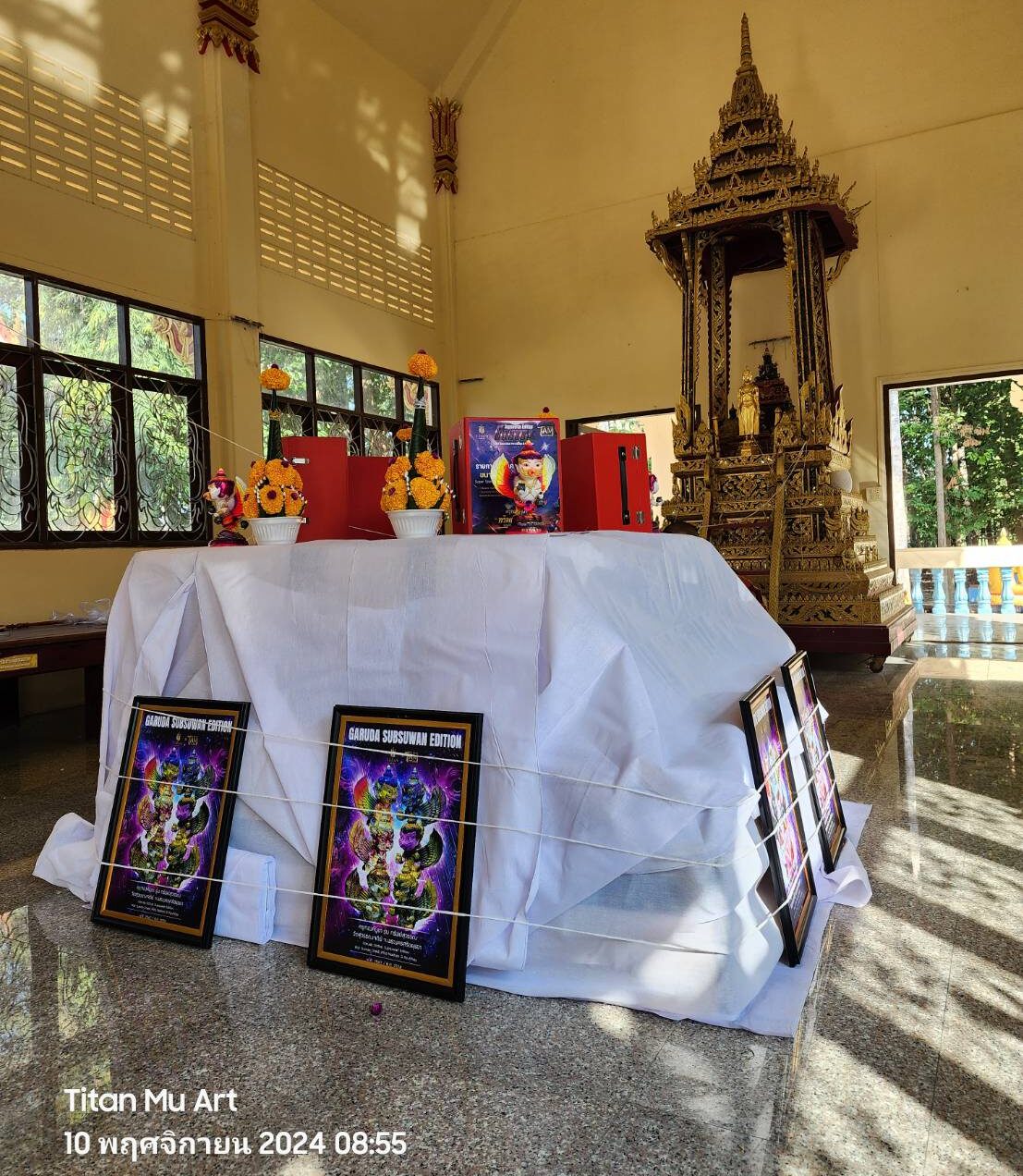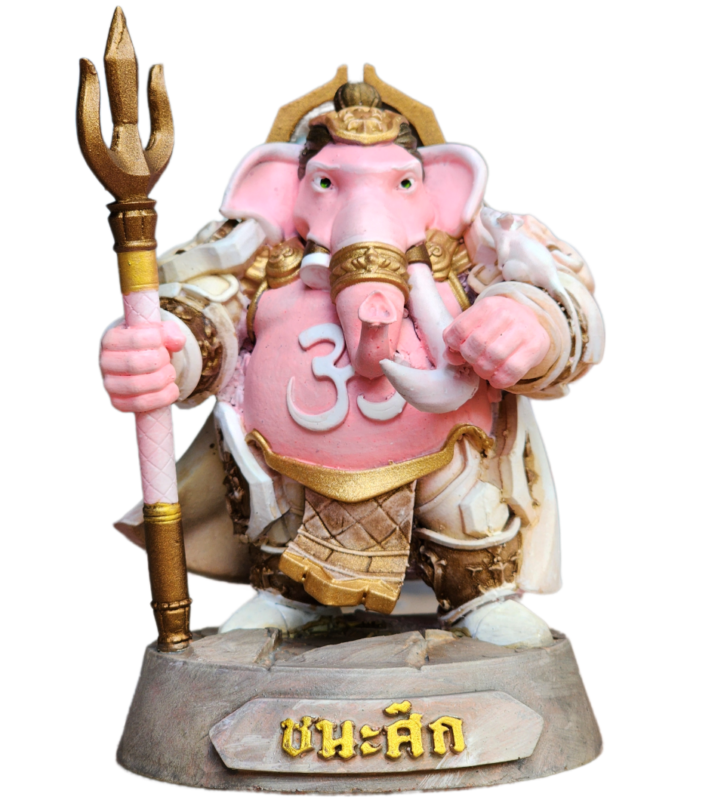Legend of Phaya Krut
In the legend of the celestial city of Himmapan, there are stories of many powerful creatures, such as the lion, the elephant-lion (with the body of a lion and the head of an elephant), the kinnara, the kinnari, and many other strange animals. Among all these creatures, there are two that are considered divine and possess great powers: Phaya Krut, the lord of the sky, and Phaya Naga Raj, the lord of the underworld.
The Naga has a celestial palace in the underworld, while Phaya Krut has a celestial palace at the base of Mount Kailash and has been granted the boon of immortality. No weapon can harm him, not even the lightning of Phra Inthra. Phaya Krut is known as Thao Venthai, also called Thao Suban, which means "divine feathers." He has a body radiating golden light and possesses the greatest power among all the Garudas. He resides in the fig trees, feeds on the figs, and gathers flowers from the fig trees as divine food. The offspring of Phaya Krut grow according to the lunar calendar, maturing with the phases of the moon. They develop through the merit they have accumulated. If any offspring of Phaya Krut has considerable merit, their powers will bring forth divine figs and sweet nectar from flowers to nourish them, allowing that particular offspring to flourish and grow.
Naga and Garuda have been paired creatures in legends. The story goes that while Phra Phrom was creating the world, Phra Taksa Pachabodi gave his 13 daughters to Sage Kasiyapa, resulting in many offspring. Among these daughters, Nang Katruth became the mother of the Nagas and a thousand serpents, while Nang Winta, her sister, laid two eggs that took a long time to hatch. Unable to wait, Nang Winta broke one of the eggs to let the hatchling out. When the offspring emerged, it turned out to be a half-bird boy with an incomplete body because it hatched too early. The half-bird son then advised his mother to wait for the other egg to hatch naturally, which would produce a fully-formed half-bird son with great merit and power, who would help Nang Winta overcome all suffering. After saying this, the first half-bird son flew away and became the charioteer for Phra Suriyatep, known as Aruna, who is considered the older brother of Phaya Krut.
Later, Nang Katruth and Nang Winta made a wager about the color of the tail of the horse that was running around in heaven during the time when the gods and demons were churning the nectar of immortality. Whoever lost would have to serve the other forever. Nang Winta chose to answer that the horse's tail was white, while Nang Katruth said it was black. However, Nang Katruth already knew that the horse's tail was white and was afraid of losing, so she devised a scheme by having her thousand snake offspring coil around the horse's tail to make it appear black. When the horse ran past, both women saw that its tail was black. Therefore, Nang Winta had no choice but to concede and became Nang Katruth's servant.
At that moment, the second egg of Nang Winta hatched. When it was born, its body grew so large that it reached the sky. Its aura flickered like lightning, and every time it moved its wings, the mountains trembled and had to flee along with the winds. A brilliant radiance burst forth from its body, illuminating all directions, creating a spectacle that made the gods panic, thinking it was a divine fire. They all came to worship it, seeking protection. After that, it flew off to find its mother, Nang Winta, and upon finding her, she recounted how Nang Katruth had cheated in the wager, making her a servant. When the half-bird son of Nang Winta learned of this, he felt a deep rage toward Nang Katruth and the Naga. This led to a longstanding enmity between the half-bird son of Nang Winta and the Naga, with battles occurring whenever they encountered each other. However, Nang Winta pleaded and forbade her son from doing anything against Nang Katruth and the Nagas, as she wanted to uphold the promise and the integrity they had agreed upon. The half-bird son of Nang Winta agreed to stay with her and serve Nang Katruth and her thousand offspring, the Nagas and snakes.
In the end, the half-bird son of Nang Winta went to negotiate for his mother's freedom from Nang Katruth and the Nagas. Nang Katruth agreed to exchange Nang Winta's freedom for the nectar of immortality. The son of Nang Winta immediately flew off to find the nectar. Along the way, he encountered the sage Kasappa, his father, who advised him to fly to a certain lake and catch a giant tortoise and an elephant that were fighting to gain strength for his journey to find the nectar. The son of Nang Winta caught both animals and continued his flight. When he reached a banyan tree, he stopped to rest on one of its branches. Four sages were practicing austerities beneath that banyan tree. When he landed, the branch broke, but the son of Nang Winta held onto the branch to prevent the four sages from falling. The sages then called him "Garuda," meaning "the bearer" or "the one who can lift heavy burdens." From that moment on, the son of Nang Winta became known as "Phaya Krut."
When news of Phaya Krut's intention to steal the nectar of immortality reached Indra, he ordered the heavenly soldiers to strengthen their ranks. The outer layer was to be guarded by the celestial beings and messengers, while the pot of nectar was placed in the center of a wheel guarded by two giant serpents that spun the wheel, surrounded by fire to prevent any intruders. When Phaya Krut arrived, he fiercely battled the heavenly army, using his wings to create powerful gusts that scattered the celestial soldiers, who could not withstand Phaya Krut's might and were defeated, disappearing entirely. Phaya Krut then flew down to the ocean, swallowed water, and extinguished the flames surrounding the wheel, devouring the serpents that were spinning it. He then seized the nectar to rescue his mother. Indra intervened, leading to a fierce struggle. Indra struck Phaya Krut's wing with a thunderbolt, but the bolt could not harm him. Ultimately, Indra conceded defeat to Phaya Krut, who honored Indra by giving him a single feather from his wing. From that moment on, Phaya Krut was also known as "Thao Suban," meaning "the feather of wonders."
The tale of that battle became renowned across the three realms, prompting Lord Narayana to descend to help quell the conflict. A fierce struggle erupted between Lord Narayana and Phaya Krut, shaking the heavens and trembling the earth, yet neither could defeat the other. They decided to end the conflict and forged a pact of friendship. Phaya Krut promised to serve as Lord Narayana's mount forever and to be the flag of Garuda to be planted on Narayana's war chariot. In return, Lord Narayana granted Phaya Krut the blessing of immortality, ensuring that he could not be destroyed. Afterward, Phaya Krut took the nectar of immortality to rescue his mother, Nang Winta.
Garuda is a semi-opapatika creature, or a semi-ethereal being similar to the inhabitants of the hidden realm and the Nāga. They exist in a different dimension from our world. Those who can encounter Phaya Krut must have a shared merit with him in the past to recognize each other. Similarly, those who can communicate with the Nāga must also possess a karmic connection that has existed since ancient times. This is not a public matter that everyone can know about, like common knowledge.
The story of Phaya Krut is one filled with wonder and excitement, yet it doesn't garner much interest from the general public. In reality, the tale of Phaya Krut is worth studying because, in Hinduism, Garuda is revered as one of the deities. Even in Thailand, the mystical traditions hold a great respect for Garuda. For instance, the national emblem features a design resembling Garuda, which suggests that Garuda possesses certain powers and likely exists in another dimension.
Beliefs about Phaya Krut
Phaya Krut is a mythical creature from the Himmapan forest, but it is not an ordinary animal. Phaya Krut is a semi-divine immortal being with powers comparable to the divine. Phaya Krut is one of the vehicles of Lord Narayana. In Thailand, we regard the king as a celestial being, an incarnation of Narayana; hence, the use of the Garuda flag and the Garuda as the national symbol. Garuda can be seen in various official documents, which are considered sacred. If any government official carries out their duties with integrity and loyalty to the country, the king, and their responsibilities, Phaya Krut will send protective energy, bringing happiness in all aspects and progress in their careers.
Additionally, there is a belief that if there is a strong curse present, placing or worshiping the emblem or symbol of Phaya Krut will eventually dissolve that curse. Phaya Krut is believed to have the power to cleanse curses, and this belief has been upheld throughout history, earning great respect and veneration as a representative of the supreme deity. Anyone who possesses the symbol or image of Phaya Krut for worship will receive immense blessings, such as progress and prosperity for themselves and their families.
Ancient people also held another belief that Phaya Krut is a symbol of prosperity and great power. It is said that any child born with features resembling those of Phaya Krut is a person with significant merit from past lives and is destined to achieve great success in the future.
This belief in Phaya Krut is widely held by ancient people, and even amulets related to Phaya Krut are considered to be powerful talismans with significant meanings and numerous outstanding attributes.
The power of Phaya Krut is the divine authority of this immortal being, which cannot be killed and lives indefinitely. This is considered a mystery that scholars have sought to research and uncover the source of such power. As a result, various amulets have been created. The powers of Phaya Krut can be categorized into eight aspects, with the main powers being as follows:
1. It is a great power, an absolute authority.
2. It can eliminate all curses and black magic; spirits and demons fear and do not dare to come close.
3. It is a medium that brings prosperity, honor, and status to one’s life and career.
4. Protects and safeguards, providing invulnerability against dangers.
5. It is a great charm for attracting kindness and popularity.
6. It brings peace and happiness.
7. It ensures good business and serves as a medium for various blessings and fortunes.
8. Fierce animals, various venomous snakes, and serpents do not dare to approach because they fear the power and authority of the great Garuda.
Prayer to Lord Garuda
Namo (3 times)
Karupicha Gitimantan
Ma-Au Om Lord Garuda
Ruj Ruj and be prosperous, may I receive money
May I receive gold, may I receive wealth
Na Metta, Na Progress, Na Stability
Na to dissolve the curses, Athithami
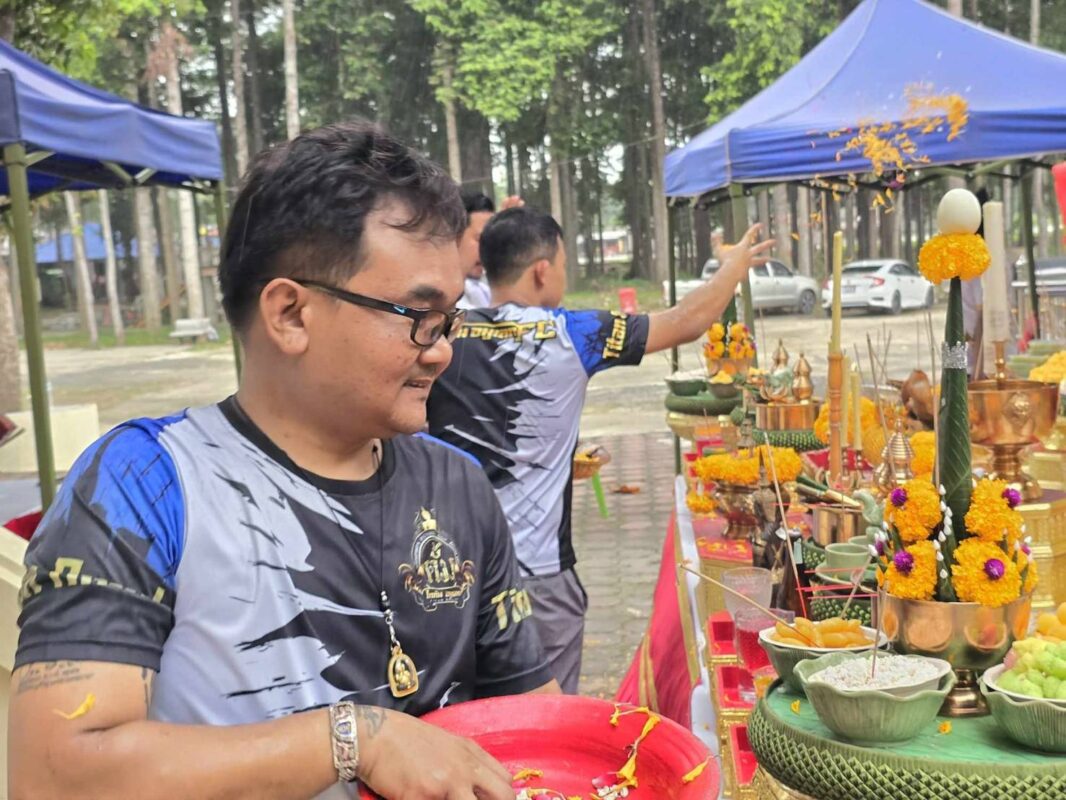
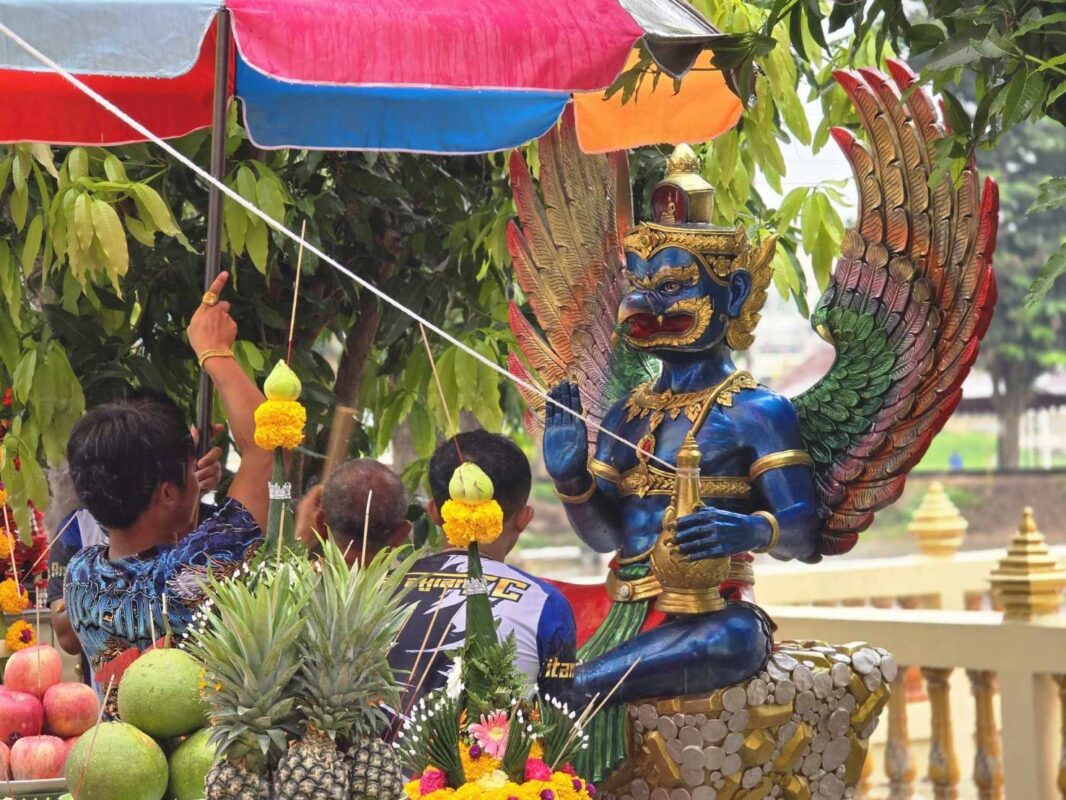
Thank you to the source. https://www.trueplookpanya.com/blogdiary/17089

